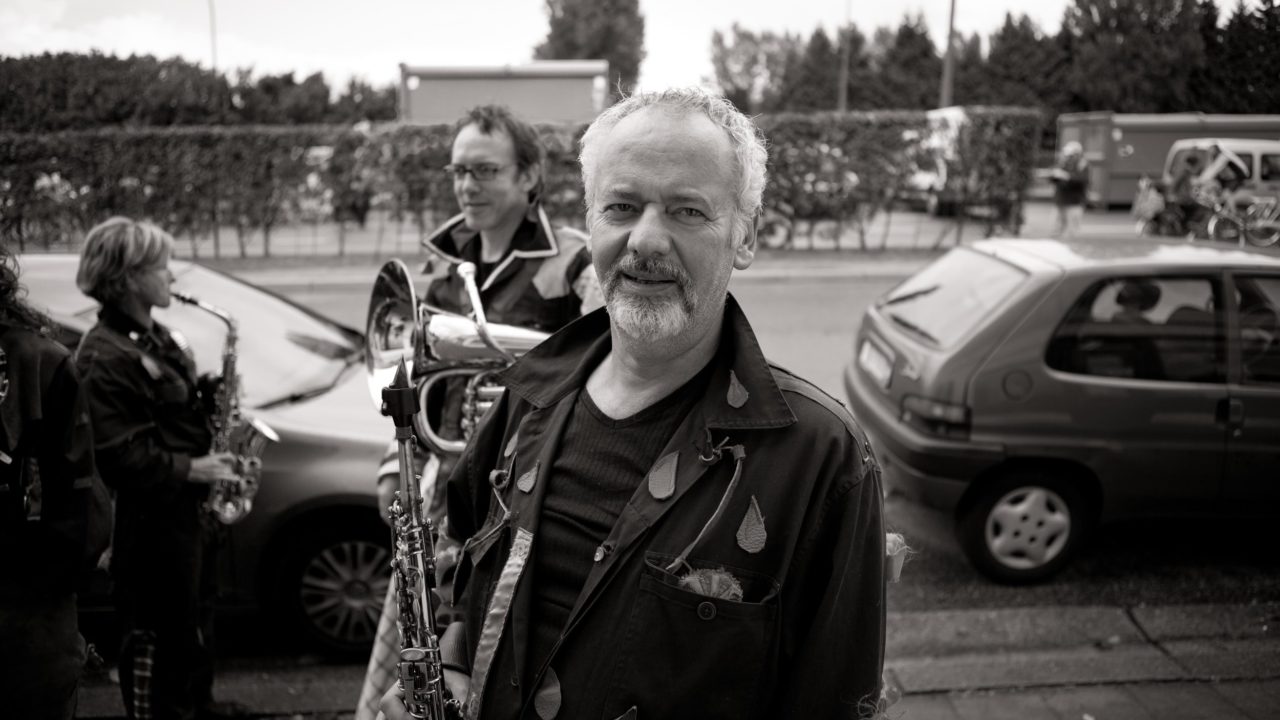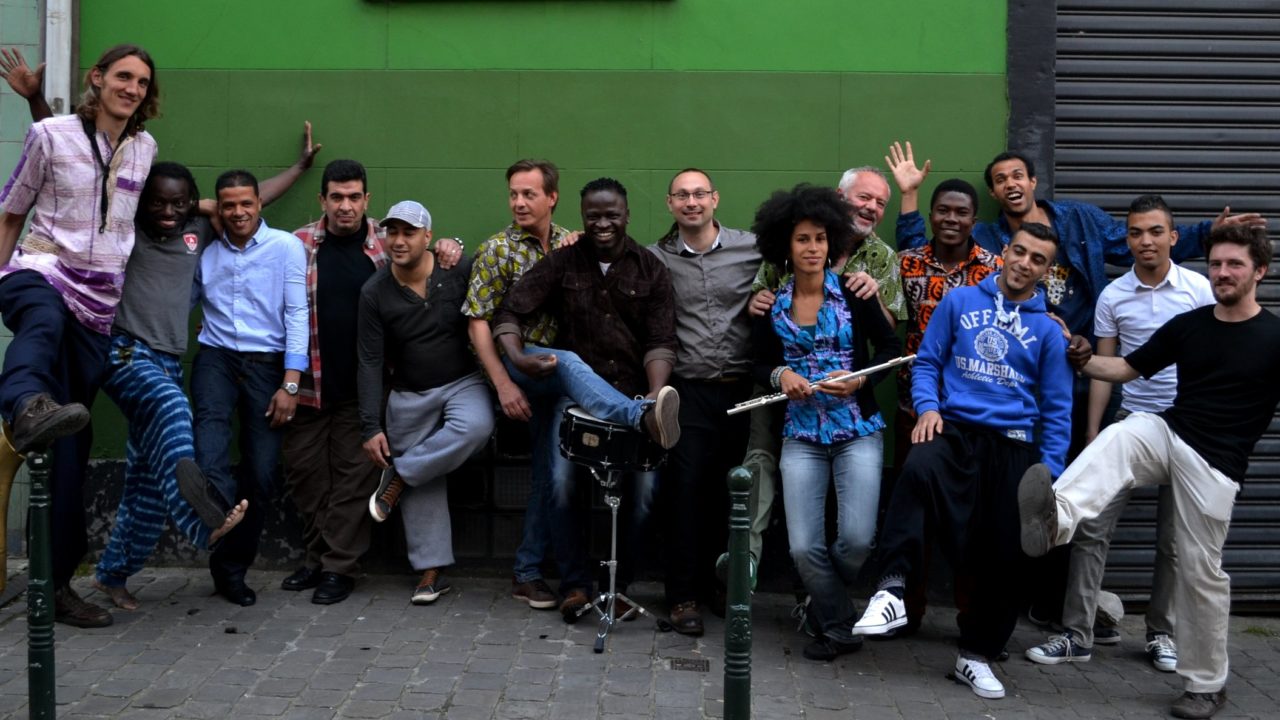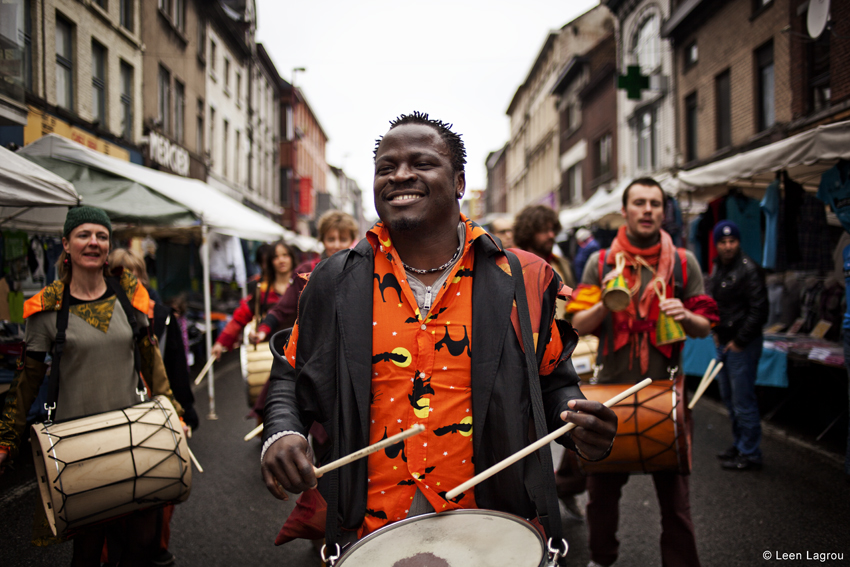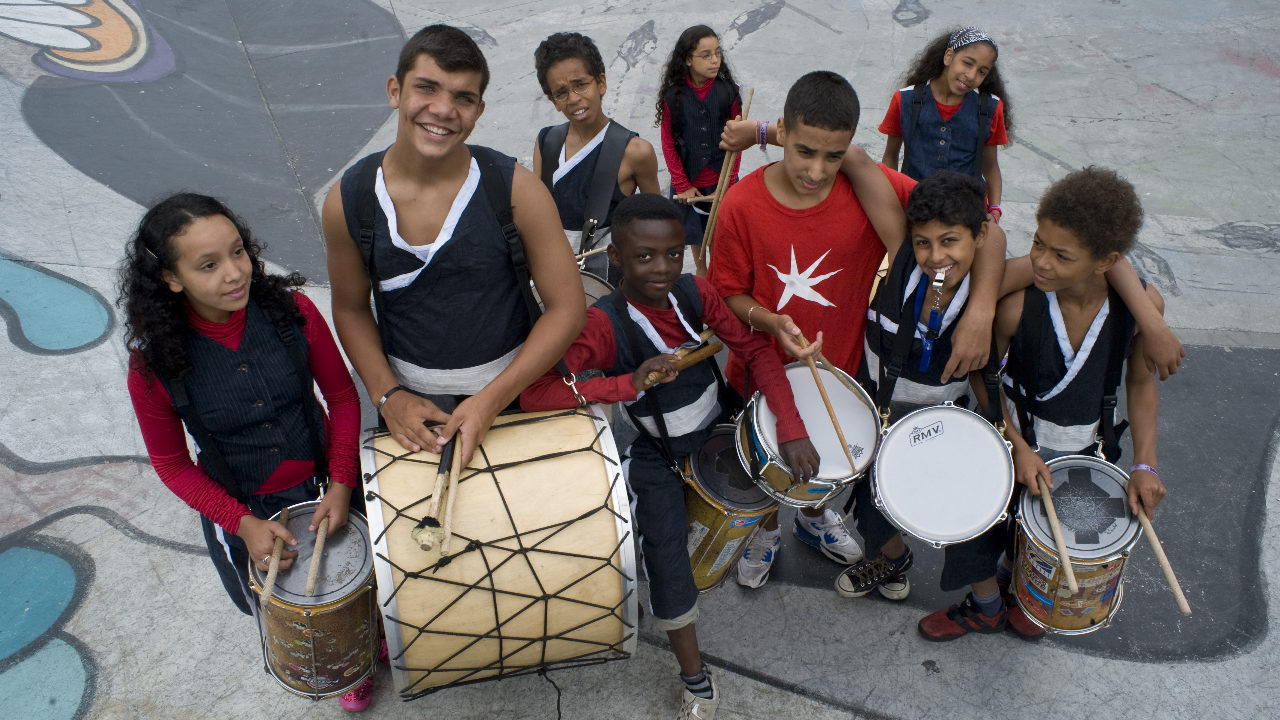Featured People: Luc Mishalle
2 May 2017
On Europe Day (9 May), the European Cultural Foundation (ECF) has presented four outstanding laureates with the 2017 ECF Princess Margriet Award for Culture: literary writer and journalist Aslı Erdoğan (Istanbul); writer and scholar Navid Kermani (Cologne); musician Luc Mishalle (Brussels); and visual artist Marina Naprushkina (Berlin).
Saxophonist and composer Luc Mishalle juggles many roles, most of which converge in his artistic directorship of MET-X. Based in Brussels, this house of music makers performs music and provides educational programmes that are inspired by a range of musical genres and traditions, from brass to folk, from electronic to jazz, and involving musicians from all generations. His projects are always about community building, whether in Brussels neighbourhoods, across Europe or in North or West Africa. ECF Princess Margriet Award curator Wietske Maas talked to Mishalle about his early influences, his work and how culture can offer a response in the current climate of polarisation.

Let’s start from the beginning: was there a moment when you realised you would become a musician, or was music something that came naturally to you?
Music came naturally to me. I started playing music in primary school: flute, mandolins, banjos and the like, until music took a bigger slice of my life. But even later, working as a musician, I still wasn’t sure if I was a musician. I picked up American folk music, then free jazz. I studied a bit of classical music and from then on, I started wondering what music I could do? The sum of all those music styles was important to me.
I started asking myself questions – as I learned from European improvised music and jazz, for instance. I thought: why should we try and play what is an American jazz style here, in Europe? What is the relevance here in Antwerp, now? I had friends of Moroccan and Turkish origin and I noticed there was a lot of scope for improvisation in their popular music too. That’s when I started thinking that maybe we should invent more of an Antwerp style of jazz music, which has nothing to do with the tradition of jazz but is from here, and from now. In the end, I found the rhythms within Moroccan music and the melodies improvised around it, and strangely, it felt much closer to me than a number of chord schemes.
Other important moments shaped the way I make music now: in England, I worked with an artistic collective, Welfare State, where we did workshops with people of Ghanaian origin. Back in Antwerp, I played with a Turkish musician. We formed a duo playing regularly in a tiny restaurant. I later toured all over Europe with a trio. Then I got more into Moroccan pop music with youngsters. I have learned a lot of melodies and rhythms. You absorb from other people basically. Then you make things with that. In the end, it builds your personality. Working with popular Moroccan rhythms and most recently West African rhythms, I feel more and more this is all very much a part of me. It feels like myself; it doesn’t feel like someone else anymore.
Could you tell us more about MET-X: what kind of community (or communities) are created through MET-X?
The ideas I have captured working with Welfare State still linger on. It all has to do with community building. We try and have contact with people personally. Most of the people working with MET-X feel more comfortable with a small audience so we keep a close audience contact. We need that very personal contact and that community feeling in order to create a joint atmosphere with artists and the public. It is not about us artists on stage playing to an audience that listens to us. We try to avoid that.

We live in a globalised world. Do you think the simple distinction between western and non-western (music) cultures is still relevant? Is it helpful to understand what you do through MET-X as a dialogue between western and non-western musical styles?
It doesn’t necessarily have to be a dialogue between western and non-western. A lot of people in Brussels, like myself, have a bit of both in them. And the personality is not just western or just non-western. It starts in French – sometimes when I make music there are a lot of Gnawa or Moroccan influences, but it feels like me as well. When you live in Brussels, or in practically any big European town with a lot of artists, that distinction between pure tradition and our tradition gets mixed up. It is métissage: bringing things together and making something new.
Would you say your music is more about keeping traditions alive or more about adding to, changing traditions?
For my work and MET-X in general it is definitely not about keeping the tradition, but about creating new music that we sometimes call creating “Brussels music”. In MET-X, we try and give those traditions a place here and now, in Brussels for instance, but also in Europe more generally. Otherwise you have all these separate traditions and for us it is important to find out how can you communicate on a musical level in the first place.
Your oeuvre is a complex intersection between many genres and disciplines, where music meets theatre and education. But a main subtext in your own and MET-X’s projects is the city, and especially an urban context that is made up of such a diverse social fabric as Brussels. Why and when did you start working within the urban context?
I was born in Antwerp. I always lived in a city. I spent a short period in a village in Wallonia, and I was unhappy. I need the city to create work. I need a lot of things going on around me. I can’t just create music watching the sea or the countryside. Personally, I need noise around me. There is a strong Gnawa community in Brussels. You have a group of people who you can work with. The largest Moroccan community in Western Europe lives in Brussels, which is a pole of attraction for Gnawa musicians.
Let me share an example: during Brussels 2000 – when Brussels was European Capital of Culture – I organised a few activities including traditional brass bands from Brussels. When that music was all brought together, it was an incredible feast. All those people normally don’t know each other – neither the artists nor the public. To create one language with all these elements was very exciting to me. It’s hard to explain this, but it is trying to create a language where all these elements remain or keep their own identity, while they can still work together. It is therefore not a question of what happens in pop music where identities are flattened, but giving the identities of everyone inside the group and giving them a place in the performance. And that can happen in a large event, but it can also be done with particular groups. I find it interesting to work with individuals, let them all have their sound as we try and make a new sound. They all have their own musical language. We can still create a new music that doesn’t sound like jazz or world music. It requires a longer process but it can be more interesting. What we try to do with MET-X is to create music that doesn’t exist yet.

Would it be an accurate description to say that MET-X is creating a folk music that is in tune with the ever-changing social fabric of the city?
We try to create a new kind of folk or popular music that is relevant for here and now. Mixing a brass band with Gnawa percussion, like we did with Remork & Karkaba, is the result of many years of working together. We include the European tradition of a brass band, but the percussion is also typically Moroccan. You notice immediately that you do not play for one type of audience. When Gnawa musicians play on their own without the brass band, they attract a very Moroccan audience, but when you start mixing, you wake a mutual interest.
You are working with first and second, third generation migrant communities. Is there also a social imperative behind the music you make with others, or does the music come first?
Music always comes first. We work with minorities since cultures of minorities are very present here. What we do is first and foremost culturally defined and thus not driven by a social imperative to work with migrants or refugees. At MET-X we try and create a musical language in the first place.

Education has always been an undercurrent in your musical projects for MET-X. When did this educational strand come into your own and MET-X’s work?
As far as I remember. In the beginning of the 90s, when Antwerp was cultural capital of Europe, we did a lot more pop with Moroccan influences. We have worked with musicians that were or are not technically trained. It has never been about teaching how to make music. It is always about creating something together. This is still one of the pillars of the work of MET-X: we always say we are going to make a production.
With such a broad span and tireless commitment to engaged creative (one could say also activist) practice, has MET-X in anyway influenced (cultural) policies?
Cultural policy certainly has changed. It is impossible to say whether that is because of MET-X or because of changing communities, or any other reason. Influencing cultural policy has always been on our agenda too, not only through music but also by being part of commissions within the Flemish Ministry of Culture, and by being part of organisations that make up the cultural institutions of Flanders.
MET-X’s slogan is “moving music” – what does “moving” mean in the MET-X context?
We participate in a lot of parades. We do move, but we do also hope that it moves people emotionally. I think we are constantly in motion. The moving action is very important for us.
In which direction is MET-X moving to?
We merged with another company that works more with contemporary jazz and contemporary music. On-stage and professional productions are becoming more dominant. We are also doing a lot more work in West Africa, and I think our focus in the next few years will be more on West Africa. I am looking forward to this, because over the last five years, I’ve been working there nearly every year.
I am very curious to see what happens after me as I am retiring as artistic director. I am happy to let go and to concentrate on just playing. Personally, I want to keep on playing for as long as possible.
